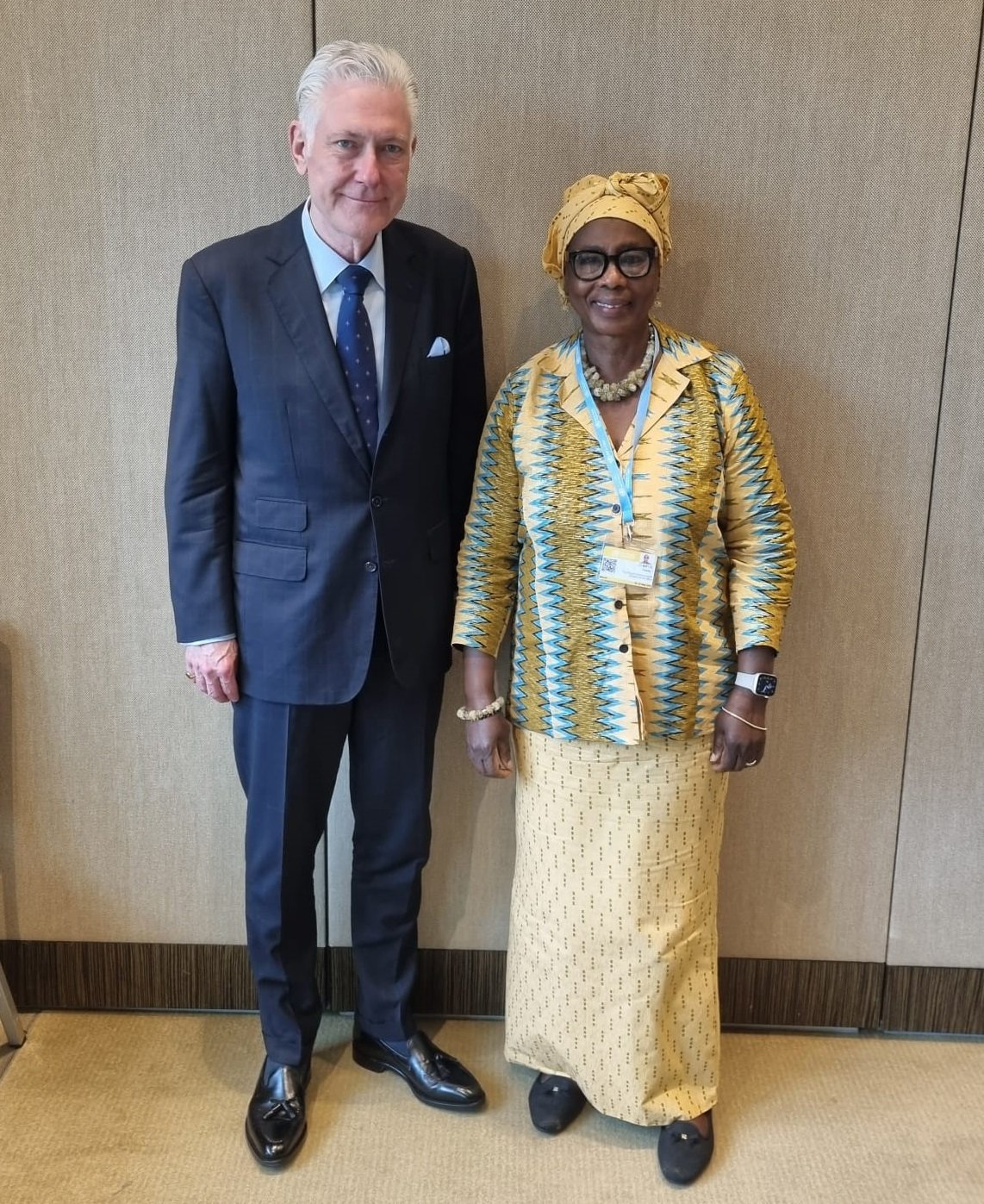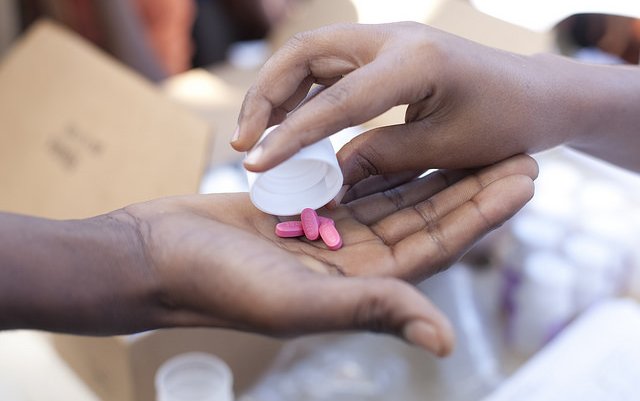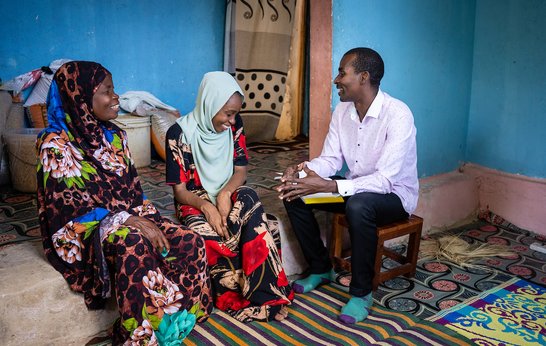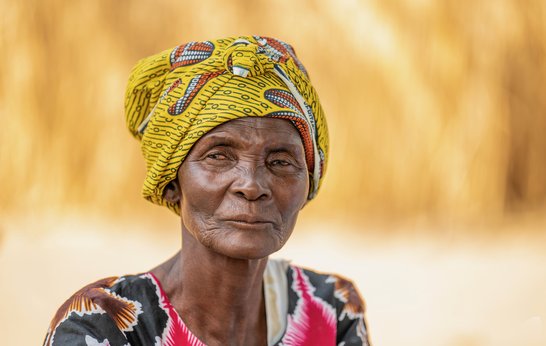May 2025
Momentum is building in the fight against neglected tropical diseases (NTDs) with Pharmaceutical Company, Novartis, set to invest nearly double its initial pledge at the 2022 Kigali Summit by the end of 2025.
As the global health landscape continues to evolve, a powerful momentum is building around the value of investing in NTD elimination programmes. A significant beacon of this progress comes from the pharmaceutical sector, with Novartis set to nearly double its initial five-year financial commitment for malaria and NTD research and development by the end of 2025 - committing an impressive $490 million, far exceeding its original 2022 $250 million promise, which included $100 million towards NTDs such as chagas disease, dengue and leishmaniasis, and $150million towards malaria. This remarkable increase indicates a deepening commitment from industry partners and signals a robust belief in the achievable goal of NTD elimination.

Uniting’s Executive Director, Dr. Isatou Touray, met with the President of Global Health at Novartis, Dr Lutz Hegemann at the recent 78th World Health Assembly. The meeting reaffirmed shared goals around drug donation programmes and scaling access to treatment.
This renewed dedication is particularly vital as we approach a significant milestone: the three-year anniversary of the Kigali Declaration on NTDs. Launched by H.E. Paul Kagame, President of the Republic of Rwanda, at the Kigali Summit in June 2022, this high-level political declaration has been a catalyst for global action. It mobilises political will, community commitment, resources, and action, placing individuals, communities, and countries at the heart of the NTD response.
The Kigali Declaration sets ambitious targets aligned with the WHO Road Map for NTDs. Since its inception, it has galvanised substantial support, including an initial US$1.5 billion in financial commitments and 18 billion units of medicine commitments . Click here for more information or to endorse the Kigali Declaration.
Central to the success of the Kigali Declaration is the Commitment Tracker, the first and only publicly available platform for monitoring NTD commitments. It provides unprecedented transparency, encouraging collaboration and ensuring accountability across stakeholders. The Tracker helps demonstrate the tangible impact of these pledges.
Since October 2024, the total units of medicine donated as recorded on the Commitment Tracker have surged from 19 billion to 28 billion units. This substantial increase reflects updated and more accurate reporting from a key pharmaceutical partner, showcasing the dynamic nature of these ongoing, needs-based contributions to critical programmes targeting diseases like onchocerciasis (river blindness) and lymphatic filariasis.
Financial commitments have also seen a significant boost, increasing by over $441 million since September 2024, bringing the total value on the Tracker to over $1.8 billion in May 2025. This growing financial backing, alongside the influx of donated medicines, evidences the global community's rallying support.
The movement continues to grow with new, vital endorsements. On World NTD Day earlier this year, Sudan, Vestergaard, and the European & Developing Countries Clinical Trials Partnership (EDCTP3) officially endorsed the Kigali Declaration, bringing the total number of signatories to 84.
In addition to these, Ghana and Tanzania, two endemic countries, have also joined the Commitment Tracker, collectively contributing over $18 million up until 2030 in new financial pledges. Their leadership highlights a crucial shift towards country ownership and domestic resource mobilisation.
NTDs trap millions in poverty, hindering productivity and economic growth. Eliminating these diseases unlocks human potential, strengthens health systems, and directly contributes to broader development goals. Every dollar invested in NTD programmes leverages approximately $26 worth of donated medicines, making it an incredibly cost-effective "best buy" in global health.
At the recent 78th World Health Assembly in Geneva, WHO Director-General Dr. Tedros Adhanom Ghebreyesus celebrated what he called a “golden age of disease elimination,” spotlighting historic progress in the fight against NTDs, with 11 countries recognised for eliminating at least one NTD since the start of 2024. Among those celebrated were Mauritania and Papua New Guinea, who both announced the elimination of trachoma as a public health problem. This also brings the total number of countries globally that have eliminated at least one NTD to 56.
These recent elimination wins, coupled with increasing country ownership, a growing list of signatories, and robust data from the Commitment Tracker make it impossible to ignore the tangible return on investment in funding NTD elimination programmes. It shows how with sustained political will, innovative financing, and strong partnerships – including leveraging platforms like the World Bank's IDA21 for dedicated disease elimination funding – we can ensure that no one is left behind in the journey towards a healthier, NTD-free world.


